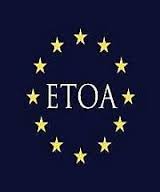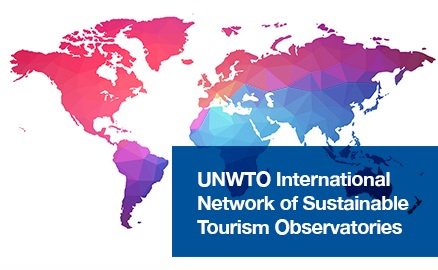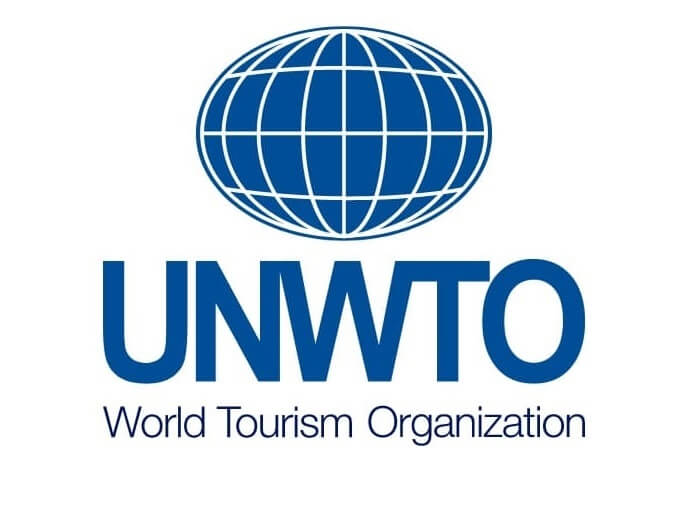
Tourism Development and Conservation: Challenges and Opportunities
The Zimbabwe Minister of Tourism & Hospitality Industry, Hon. Dr. Walter Mzembi spoke on the occasion of the Parliamentary Conservation Caucus Launch on “Tourism Development and Conservation: Challenges and Opportunities on July 19 at the Meikles Hotel, Harare:
Transcript:
Tourism worldwide is in the export category. It ranks third, behind only fuel and chemicals, and ahead of food products and automotive industry. In many developing countries such as Rwanda, tourism is the top export sector. It contributes 10% to Global GDP, generates 1.5 trillion USD in export earnings, employs 1 in every 11 globally, accounts for 30% of total exports in services and it is 7% in quantum for all global trade. The sector has experienced exponential growth from 25 Million international arrivals in 1950 to 1.2 Billion international arrivals in 2016.
Africa experienced a tremendous growth of 8.1% from 53.8 million in 2015 to 58.2 million in 2016. Global growth has been sustained since 2009. However Africa’s market share has remained very small at an average 3-5% in the past decade.
Going forward to 2030 aligned to the SDGs timelines, the sector is signposting 1.8 Billion. However, we are likely to revise these figures on the back of fast growth of the Chinese outbound tourism market. The Chinese Premier last year cautioned us to prepare to receive 600 million Chinese tourists by 2020 from the initial projected growth of 280 million. China is the current bulwark of outbound tourism with its ever growing middle class of over 300 million. What it means is that Africa should prepare itself to receive the world.
Coming closer home, in the year 2016, Zimbabwe received a total of 2 167 686 tourist arrivals, 5% up from 2 056 588 received in 2015. Tourism contributes plus or minus 10 percent to GDP, coming second to Mining and Agriculture. It has potential to grow above the current 5% growth rate in arrivals if adequate resources are directed towards its development. Zimbabwe tourism is mainly nature based and therefore its success mainly depends on biodiversity – Flora and Fauna endowments. This calls for sustainable utilisation and management of our biodiversity and nature in general.
In its 2015 Study Report ‘Towards Measuring the Economic Value of Wildlife Watching Tourism in Africa’ by the UNWTO which followed the presentation of our concept note on ‘Tourism and Biodiversity: Zero Tolerance to Poaching in Africa by 2020’, the UNWTO identified nature related activities constituted over 80% of what Africa sells to markets as its major attraction in its product offering. Set against the scourge of biodiversity terrorism which in our parlance we call poaching, countries and the international community have the responsibility of protecting nature. Tourism is the cutting business edge of biodiversity in its marine and terrestrial nature, and without it, we cannot be there.
It is important to note that there has been a seismic shift specifically from consumptive to non – consumptive forms of wildlife tourism which offer visitors the experience of observing wildlife in natural and non – captive habitats. Generally, species of wildlife that can be observed through this form of tourism are the same as those most threatened by poaching and other forms of environmental detriments. We are at a point here in Africa where some countries have run short of particular wildlife species such as elephant and the rhino due to poaching – the reason why we need to move towards more and more enforced conservation, restoration and rejuvenation of our biodiversity. The biggest mischief is in the source markets that provide incentives for illegal dealing in wildlife products, and our concept alluded to above speak to those issues.
Poaching remains the in my view, remain the biggest scar in the conscience of humanity, and threatens tourism development considering that wildlife is the backbone of the tourism industry. We have aptly named it biodiversity terrorism. In 2013 over 100 elephants were killed through cyanide poisoning in Hwange National Park. More animals of different species have been at the mercy of poaching threatening the survival of the tourism industry. This has been fueled by lack of adequate resources and poor coordination among transfrontier countries in fighting poaching. Government ceased with the matter and putting measures to ensure that we provide adequate protection of our wildlife with full support of international cooperating partners. I hasten to say, we are happy that Parliament is active in this area in terms of legislation, advocacy to ensure that environmental crimes are punished severely to curb the rampant poaching.
Forests which are a major component of scenic tourism have been facing major deforestation. The trees are mainly used as a source of energy in areas where there is no electricity. Resettled farmers who do not have the proper equipment and resources for drying their tobacco have become a major threat to the forests as they use wood as a source of energy for drying their tobacco. The trees are also used as a source of timber for construction work and for making furniture. Nyanga is one tourist resort which is fast losing its appeal to tourists due to deforestation. There replacement rate for the trees that are cut down currently stands below zero, meaning no efforts are being made to replace these wild lands. Wild fires are a sight in most provinces during the dry season. This has greatly affected our flora and fauna. Animal habitat have been affected and it has destroyed many forests and grasslands. It is imperative for government to move in quickly through crafting of new legislation that provides stiffer penalties and provide resources for implementation if ever we are going to protect our country from becoming a desert.
Pertinent to the issue of wildlife is human-wildlife conflicts which is not only a problem in Zimbabwe but Africa wide. It occurs in many countries where human and wildlife ecologically intersect in the ecosystem, and they have competing requirements overlaps. These are particularly common near protected areas and nature reserves where adjacent communities suffer crop raiding and predation on their livestock. In many cases, losses go without compensation because in the last two decades, the CAMPFIRE Association has been unable to provide the required compensation due to sanctions that crippled the once highly supported organisation. We are appealing therefore to partners to come on board and ensure that this institution is resources and enabled to execute its mandate and restore its yester – year glory. Wildlife do not know about the political differences we have as people, but they also deserve co-exist with us, thus, anything that hurts this relationship must be addressed, hence my call to those who imposed sanctions on us and our wildlife to rethink about the matter.
In the same perspective, it is important to intensify to develop more sustainable tourism products that links communities with nature. To this end, there is need to develop and implement integrated community conservation projects such as Conservancies across the country.
As a Ministry, we have set ourselves targets to achieve a $5 billion dollar tourism economy backed by 5 million arrivals, contributing to 15% to GDP by 2020 – which we call 5; 5; 15; 2020. This is possible. Tourism is a low hanging fruit, which requires support and robust marketing and promotion of our destination underpinned by our unparalleled biodiversity.
We are also diversifying our products to include culture, heritage and historical tourism and indeed, city tourism as city brands are emerging as key destinations. Within their configurations, there is always a component of nature and this is the reason why we are promoting the concept of city – parks. A visit to Harare without going to Mbizi Game Park and the Lion and Cheater Park or Lake Chivero will not be enough. Going into the future, modelled around our successful land reform programme, we envisage integration of plots and farms to initiate conservation projects as lucrative enterprise. This has already started with some newly resettled farmers in Marondera having begun such projects. We encourage this innovation and creativity, which we want to see growing in Zimbabwe as we pursue conservation farming as a matter of policy objective.
We would want to see more marketing of our products. Destinations that are fast becoming successful tourism economies have invested more in promotion and incentivizing both domestic and international visitors. Tanzania for example in 2014 set aside $5 million budget for marketing alone. In Zimbabwe, the sector received not in excess of 4 million in budgetary allocation for both all operations of both the Ministry and the Zimbabwe Tourism Authority. Being one of the top three revenue earners within Zimasset and one key drivers of economic development, we are regrettably in the bottom 3 on budgetary allocations in the last 5 Years. I hope Parliamentarians will help us to advocate more allocation to the sector.
We have initiated the development of a National Tourism Masterplan which will direct all tourism development in the country, including depicting investable opportunities in Zimbabwe. The document also provides 3 growth scenarios which are Low, Medium and High Growth Areas in tourism. Government through its Special Purpose Investment arm, the Mosi Oa Tunya Development Company Private Limited, is ready to tango with investors in the establishments of various tourism assets and products. There is so much potential in Zimbabwe, including partnerships in wildlife conservation projects that we can do between us and the Department of Parks and Wildlife Management in the Ministry of Environment, Water and Climate – the custodians of our biodiversity.
In concluding my remarks to this important gathering, let me once again state clearly that in less than ten years, 150 thousand elephants have been lost to poaching. More than two rhinos are killed every day – a true story of the Tragedy of the Commons, and our Common Future may not exciting without these beautiful animals living side by side with us. Whether it is on the land or in the sea, few creatures are safe from harm, and behind all this bleak outlook, there are stories of human tragedy, too. The rangers are killed whilst protecting animals targeted by poachers. The villages are torn apart by poaching – we certainly have to do something as a collective. The international community that didn’t do enough here in Zimbabwe to capacitate us, should come not to the table and assist us to stop wildlife carnage. We are committed as government and let us build a powerful coalition of committed partners, who together, are greater than the sum total of those seeking to reverse the gains of conservation for tourism to thrive.
I thank you.




